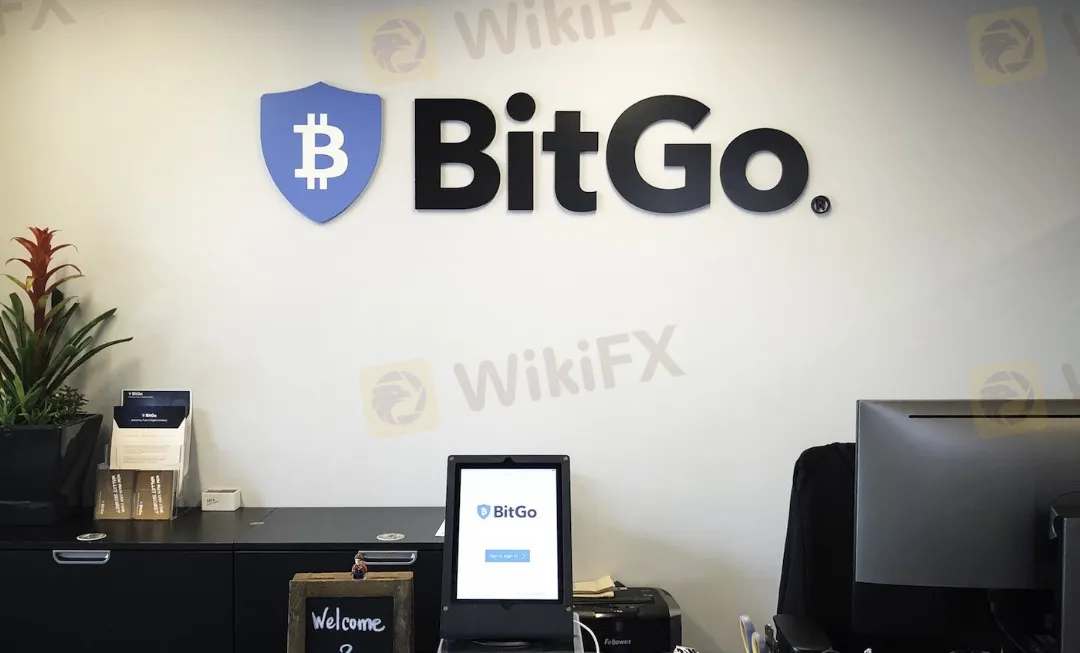简体中文
繁體中文
English
Pусский
日本語
ภาษาไทย
Tiếng Việt
Bahasa Indonesia
Español
हिन्दी
Filippiiniläinen
Français
Deutsch
Português
Türkçe
한국어
العربية
BitGo expands its cryptocurrency services through the acquisition of HeightZero.
Abstract:Cryptocurrency custody company BitGo has acquired HeightZero, a software platform designed for wealth managers to integrate cryptocurrencies and digital assets into their clients' portfolios. While the financial details of the transaction have not been disclosed, this move highlights BitGo's ambition to expand its presence in the cryptocurrency space.

Cryptocurrency custody company BitGo has acquired HeightZero, a software platform designed for wealth managers to integrate cryptocurrencies and digital assets into their clients' portfolios. While the financial details of the transaction have not been disclosed, this move highlights BitGo's ambition to expand its presence in the cryptocurrency space.

BitGo CEO Mike Belshe stated, “We have been proud to work with HeightZero over the past few years and become part of its continued growth. This acquisition is a doubling down by BitGo, HeightZero, and our clients in this space. We look forward to maintaining HeightZero's leading position while enhancing the security, assurance, and functionality of our joint products.”
BitGo Strengthens Wealth Management Solutions
HeightZero offers a suite of software tools designed specifically for wealth managers to incorporate cryptocurrencies into their clients' portfolios. This includes services such as portfolio rebalancing, report generation, tax loss harvesting, and automated billing for cryptocurrency investments. It's worth noting that HeightZero had been using BitGo's custody solutions before officially becoming part of BitGo.
The acquisition of HeightZero signifies BitGo's commitment to providing a comprehensive solution for wealth managers looking to explore the cryptocurrency space. The company aims to empower wealth managers, giving them the confidence to embrace cryptocurrencies and seize the opportunities they present.
BitGo's Strategic Expansion
Recently, BitGo secured $100 million in funding, boosting its valuation to $1.75 billion. Furthermore, BitGo partnered with KEB Hana Bank, one of South Korea's largest financial institutions, in September. The primary goal of this collaboration is to jointly establish digital asset custody services in South Korea.
In June, despite having reached a preliminary agreement, BitGo abandoned its previous plan to acquire Prime Trust. BitGo announced this decision on Twitter, stating, “This decision wasn't made lightly, and BitGo remains committed to our mission of trust in digital assets.”
Subsequently, Prime Trust filed for Chapter 11 bankruptcy protection in August. This move marks the latest chapter in the challenging journey of the fintech company, which faced various obstacles over the past year, from regulatory issues to the collapse of acquisition agreements.

Disclaimer:
The views in this article only represent the author's personal views, and do not constitute investment advice on this platform. This platform does not guarantee the accuracy, completeness and timeliness of the information in the article, and will not be liable for any loss caused by the use of or reliance on the information in the article.
Read more

CryptoCurrency Regulations in India 2025 – Key Things You Should Know
Cryptocurrency has become a major trend in today’s world. Crypto Experts believe it’s the future, which is why many people are investing heavily in it. But before jumping in, it’s important for crypto enthusiasts to understand the key rules about cryptocurrency in India.

Global Brokers Vs. Indian Rules: Why They Struggle in India
RBI issued a warning last year against 75 forex brokers. Those brokers are globally popular and regulated in other countries, but they are banned in India. Only few brokers even have physical offices located in India. So, why do global brokers face so many challenges in entering the Indian market?

Tokenized Stocks: Innovation or Just Another Wrapper?
While tokenized stocks promise global, round-the-clock trading, many platforms only offer synthetic exposure similar to CFDs. Without shareholder rights or deep liquidity, their added value remains in question.

Crypto Craze Fizzling Out? Here is Why
The Crypto Craze among users is fading out. The wave of Cryptocurrency has slowed down. But what are the major reasons why this has happened?
WikiFX Broker
Latest News
Forex Hedging: Is It a Trader’s Safety Net or Just an Illusion?
OPEC+ members agree larger-than-expected oil production hike in August
FCA clarifies expectations on bullying, harassment and violence to deepen trust in financial service
Asia-Pacific markets mixed after Trump shifts goalposts on tariffs again
XS.com Expands Global Reach with Landmark Kuwait Launch
European markets set to open mixed amid fresh U.S. tariff threats
Top Wall Street analysts are pounding the table on these 3 stocks
Stock futures fall after Trump team says tariffs will go into effect on Aug. 1: Live updates
10 Unlicensed Brokers Exposed – Check Now to Stay Safe!
S&P 500 futures fall slightly as Trump threatens new tariffs, Tesla shares drop: Live updates
Currency Calculator


